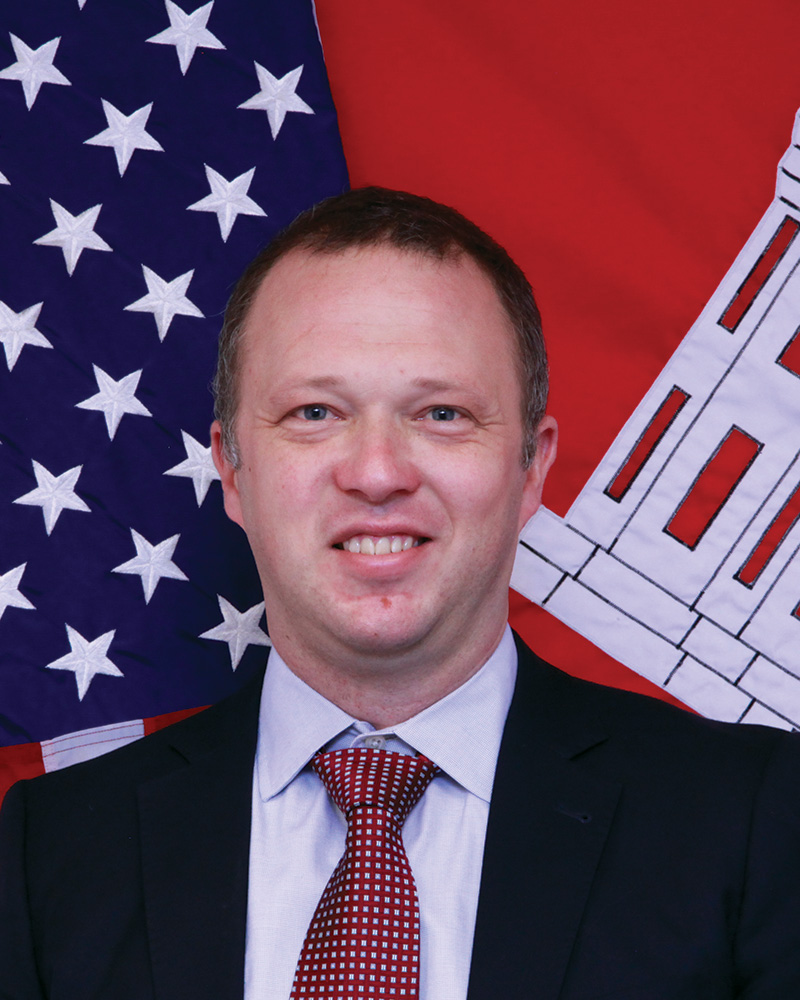Orian Welling appointed to research chief role in US Army, leading its work in cold regions.
Our expertise and reputation in cold regions have led to growing demand that we currently cannot meet, so this is a strong potential growth area for us.
Orian Welling
A Gates Cambridge Scholar has been selected as chief of the Research and Engineering Division of the US Army Engineer and Research Development Center’s (ERDC) Cold Regions Research and Engineering Laboratory (CRREL).
Orian Welling’s responsibilities include managing research, development and investigation activities in support of the US Department of Defence, the Department of the Army, the US Army Corps of Engineers and other federal agencies and customers.
“I am very excited to serve as ERDC-CRREL’s Research and Engineering Division chief,” said Welling [2009], who did his PhD at Cambridge in Engineering which focused on increasing engine efficiency. “I hope to see ERDC-CRREL continue to recruit and retain great researchers and tackle new research challenges, with cold weather energy issues being just one area of opportunity for us. Our expertise and reputation in cold regions have led to growing demand that we currently cannot meet, so this is a strong potential growth area for us. I look forward to working with our leaders and researchers to meet that need as well as explore other growth opportunities.”
 Welling [pictured right] joined CRREL in 2020 as a research mechanical engineer with the Force Projection and Sustainment Branch’s (FPSB) Mobility Team, where he led research projects on over-snow vehicle mobility.
Welling [pictured right] joined CRREL in 2020 as a research mechanical engineer with the Force Projection and Sustainment Branch’s (FPSB) Mobility Team, where he led research projects on over-snow vehicle mobility.
In 2022, Welling became branch chief, and has since grown the branch by 14 full-time research staff and oversaw a 25 per cent annual increase in the amount of research carried out. Welling has also been recognised for his work to support principal investigators in project management and the way he has re-invigorated the academic connection between Dartmouth College and CRREL, supported a high-profile international manufacturing challenge capstone event at CRREL in collaboration with the Office of the Secretary of Defence and has overseen facilities improvements to FPSB research areas, including renovation of the Mobility Laboratory building and the main laboratory Cold Box Complex.
“Dr Welling is an excellent choice to serve as chief of the Research and Engineering Division,” said Dr Ivan Beckman, CRREL’s acting director. “He is an extremely talented researcher and visionary leader who brings a lot of passion, intellect and expertise to this role.”
Prior to joining CRREL, Welling served as a senior consultant with Resource Systems Group and as a project leader with the Boston Consulting Group.
For his PhD, Welling studied combustion instabilities in down-sized gasoline engines. The work aimed to overcome limitations in these energy-efficient engines. His interest in energy efficient transportation started early and at MIT where he did his undergraduate degree he was involved in a number of energy efficiency projects at MIT.
He was interviewed for the Gates Cambridge Scholarship while completing a bicycle trip from South Africa to Egypt, his second epic cycling trip at that point. Before starting at MIT, he had pedalled 15,000 miles from Alaska to Argentina. At Cambridge, he was president of the Gates Cambridge Scholars Council.
*Soldiers of the South Dakota Army National Guard wearing Generation III Extended Cold Weather Clothing System (ECWCS) in 2010 courtesy of US Army and Wikimedia Commons.












